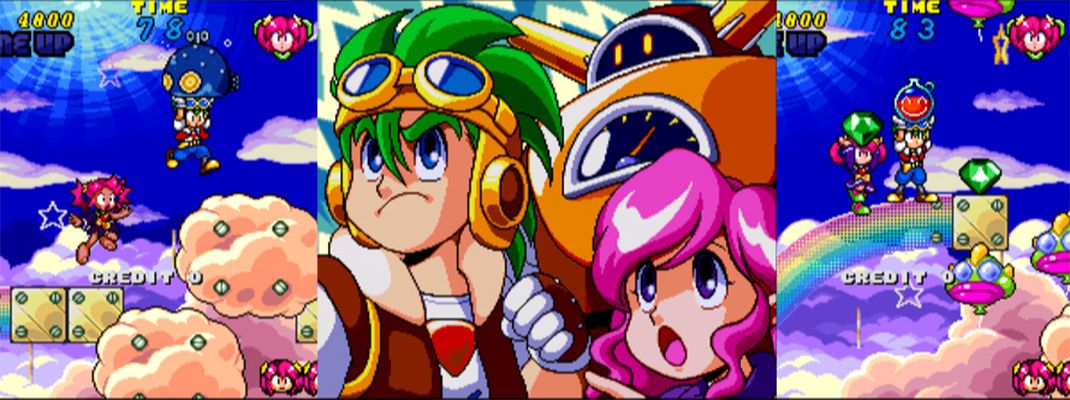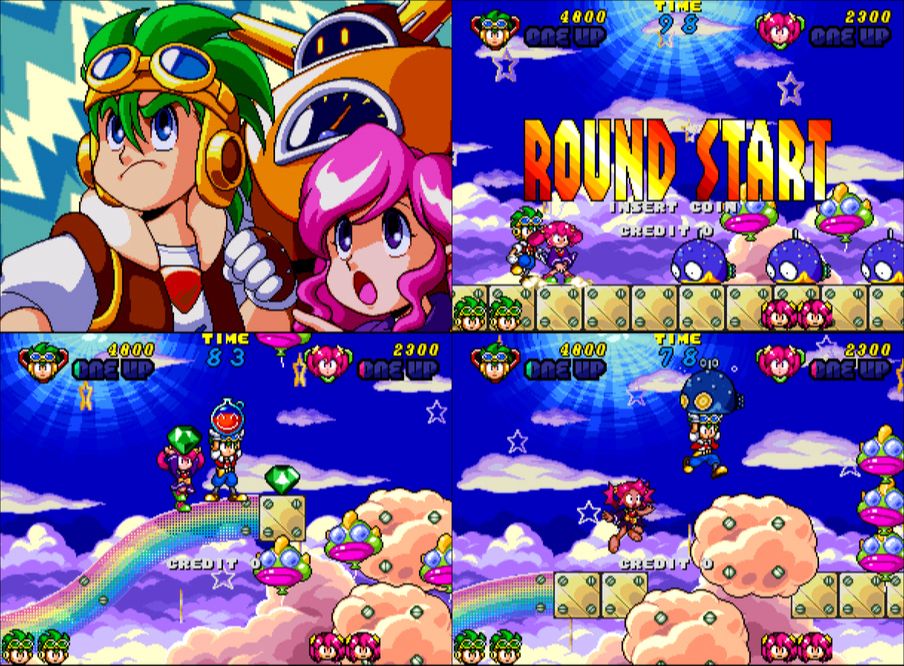The history of gaming is known more for the things that happened than those that didn't, which makes a kind of sense. It's hard to get nostalgic over a something that might have gotten a screenshot or two in a 1990s gaming magazine, filling up a few column inches and then never being heard from again. There are uncountable games that didn't receive even that much coverage before cancellation, never getting a chance at obscurity before disappearing like they were never there, but Clockwork Aquario at least had a few location tests before it was canned. Developed by the same team responsible for the excellent Wonder Boy in Monster World series, Clockwork Aquario was going to take full advantage of Sega's System 18 board with bright, colorful, detailed pixel-art graphics. (For an idea of what the System 18 could do, it was home to Moonwalker and Shadow Dancer.) The only problem was timing, in that the two-player platform-adventure was developed when fighting games were choking the variety out of arcades. To give a sense of time its location test was between Time Killers and Tattoo Assassins, which admitted were American rather than Japanese fighters but should give let you know exactly where the arcade market was at the time. The consensus was that, due to Clockwork Aquario not being a fighter, it wouldn't make enough money to justify production. And that was the end of it.
Except people have very long memories and Wonder Boy was enough of a cult classic that it spawned two recent revivals in the forms of Wonder Boy: The Dragon's Trap and Monster Boy and the Cursed Kingdom. Westone may not have been fully appreciated at the time but every once in a while history gets a correction, and now Clockwork Aquario is getting a second shot at life thanks to Strictly Limited Games. SLG tracked down the original Japanese Tokeijikake no Aquario and persuaded Sega to let them revive it, then worked with Inin Games on the rebuild. What couldn't be recovered had to be recreated, and for this they brought in as much of the original team as possible including chief programmer Takanori Kurihara, musical composer Shinichi Sakamoto, and even designer Ryuichi Nishizawa. Just because something is broken doesn't mean it can't be fixed, after all, and while the sound, music, and some graphics were gone the people who made it special in the first place are still here.
There's not a lot of info available on the Clockwork Aquario gameplay beyond it being an arcade platformer, and the screenshots clearly showing two-player simultaneous play, but its pedigree is more than enough to put this on a Most Anticipated list. Westone was a fantastic developer with a huge number of excellent games under its belt, and while it went on to create many more titles after Clockwork Aquario the game would have been its very last arcade effort. There's no release date for the revival, or specifics on which platforms its coming to, but the game will be available this year at some point. Westone's lost arcade game is finally getting shot at life, and that's something worth being excited for.


